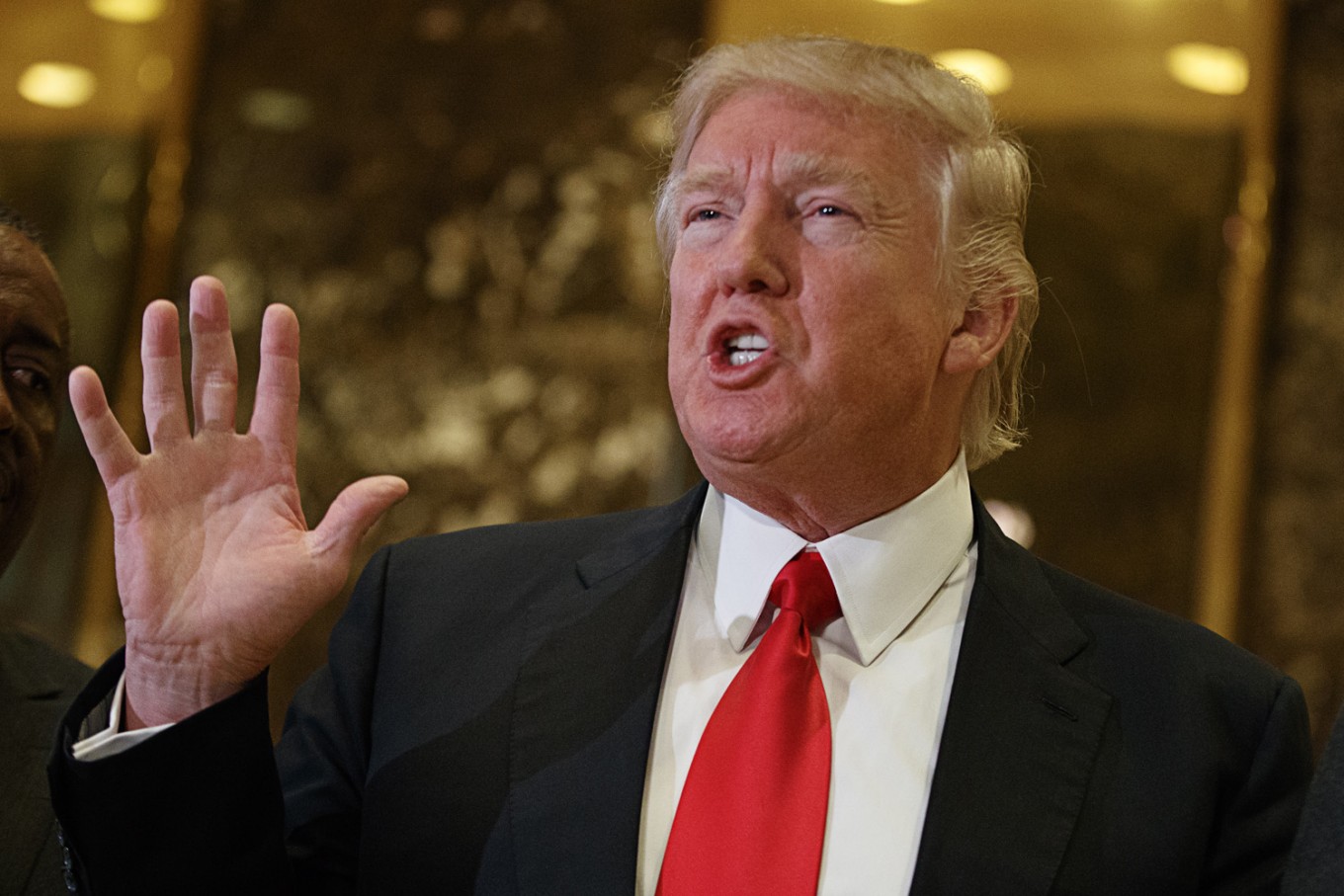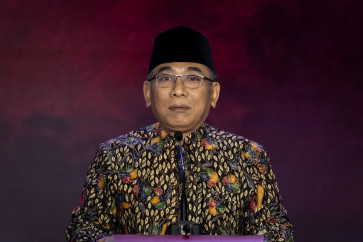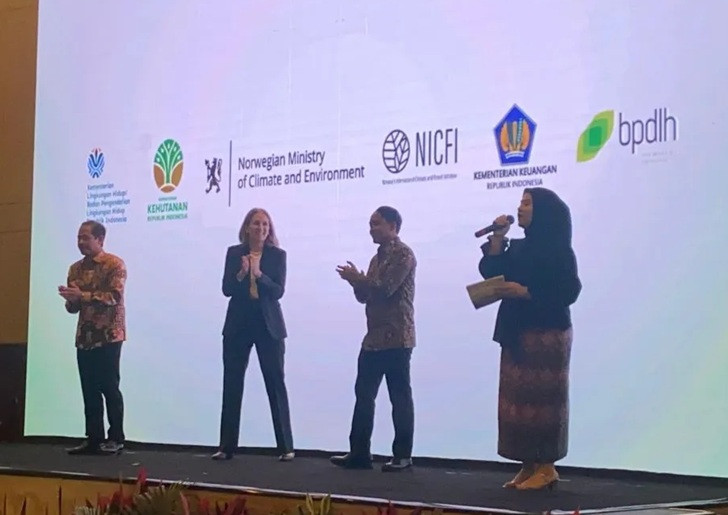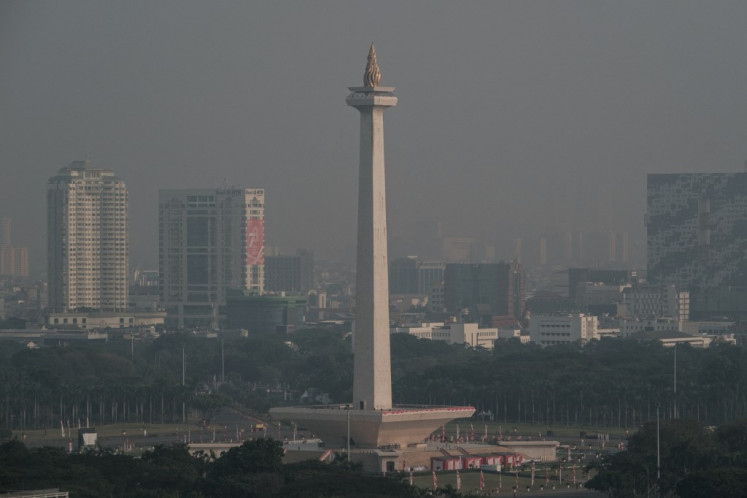Popular Reads
Top Results
Can't find what you're looking for?
View all search resultsPopular Reads
Top Results
Can't find what you're looking for?
View all search resultsThe economic policy Trump should pursue
Change text size
Gift Premium Articles
to Anyone
 Health overhaul -- In this Jan. 13, 2017 file photo, President-elect Donald Trump speaks with reporters in the lobby of Trump Tower in New York. Premiums and the number of uninsured would soar under a Republican bill scuttling President Barack Obama’s health care overhaul that Congress passed last year, lawmakers’ nonpartisan budget analyst estimated Tuesday in a report underlining the GOP’s risks as it starts a fresh push to dismantle and replace that statute. (AP/Evan Vucci, File)
Health overhaul -- In this Jan. 13, 2017 file photo, President-elect Donald Trump speaks with reporters in the lobby of Trump Tower in New York. Premiums and the number of uninsured would soar under a Republican bill scuttling President Barack Obama’s health care overhaul that Congress passed last year, lawmakers’ nonpartisan budget analyst estimated Tuesday in a report underlining the GOP’s risks as it starts a fresh push to dismantle and replace that statute. (AP/Evan Vucci, File)
A
s Donald Trump assumes the United States presidency, a group of 35 prominent international business leaders, led by Unilever CEO Paul Polman and me, is stepping forward to defend open markets, endorse the fight against climate change and demand a massive push against global inequality.
These are the core elements of what we believe is the only viable economic strategy for the US and the world.
Recent electoral outcomes, including Trump’s election, highlight the intensifying economic grievances of many households across the developed world.
In the 20 years before the 2008 financial crisis, unprecedented globalization raised incomes for just about everyone. The incomes of the poorest third of humanity rose by 40 to 70 percent and those of the middle third increased by 80 percent. The top 1 percent did even better — so much better, in fact, that the business elite is now facing a powerful backlash.
And yet the incomes of a crucial group — lower middle-income households — barely rose at all. And, since 2008, this same group has borne the brunt of austerity. Unsurprisingly, its members feel “left behind” by globalization — and are now demanding change.
Trump’s administration might be tempted to address this group’s problems in isolation, with inward-looking policies targeting specific industries, or by attempting to limit trade competition. But the problems facing these households are not isolated.
Rather, they stem from the social and environmental limits now reached by the prevailing model of economic growth. Ignoring this reality and implementing narrow and nationalistic solutions would only make matters worse.
Socially, the relative hardship in the US Rust Belt, where support for Trump was integral to his victory, is an unintended consequence of a rapidly expanding global labor market that leaves workers almost everywhere vulnerable. Countries and regions competing to attract corporate investment make weak negotiators and weak defenders of high labor standards.
On the environmental front, the evidence is dire. Human activity has already pushed the planet beyond four of its nine physical safety boundaries, including those for climate change and loss of biosphere integrity. The rapidly rising costs of environmental damage are restricting economic growth, making the relaxation of environmental protections a false economy.
In emerging markets, especially in Asia, rapid economic expansion has brought life-threatening smog and constant gridlock to cities unable to expand their infrastructure fast enough.
Tackling the world’s environmental and ecological problems, and improving the lot of those who have been left behind, will require public action, such as that which I oversaw in my roles at the World Bank, the United Nations, and the British government. But it will also demand the participation of business.
In my own career, I have seen firsthand that the growth fueled by business competition in a globalizing world can do far more to combat poverty, hunger and disease than government-funded programs alone. But when that competition is not conducted responsibly, the opposite can happen — and, in many cases, it has.
In seizing the opportunities of globalization, businesses have often neglected the developedworld workers they leave behind, while subjecting developingcountry workers to extraordinary deprivation. Moreover, individual businesses have often lobbied against and evaded environmental protections that are indisputably in our collective interest.
We expect our strategy to ensure continued globalization — in a revised form that is more sustainable and inclusive — to attract more such leaders to the cause.
The framework of our strategy is already in place, in the form of the 17 Sustainable Development Goals that were agreed by UN member states in 2015. Achieving these goals will mean decent pay, working conditions and safety nets for all participants in the global labor market, as well as safeguarding the environment.
The SDGs also promise to provide a level playing field for growth-boosting competition. Across the four major sectors we considered in detail, we saw highreturn business opportunities arising from the strategy, fueling an increase in annual global gross domestic product (GDP) of at least US$12 trillion. Other changes we advocate will ensure that future economic growth protects both workers and the planet.
To succeed, all parties must view themselves as collaborators in a win-win deal, rather than adversaries in a zero-sum game. All the evidence indicates that only a more sustainable, open and inclusive world economy can support an environmentally secure, economically prosperous, and socially just future for humanity.
As for the US, this strategy aligns with Trump’s own declared priorities. Not only does it offer the most promising solution to the economic grievances of his core supporters; it also entails a surge in infrastructure spending, much like the one Trump has already promised.
Instead of using fiscal stimulus in a vain effort to revive failed smokestack industries and old energy sources, Trump’s administration — and the world — should place its bets on a low-carbon future. Plenty of businesses surely would get on board.









